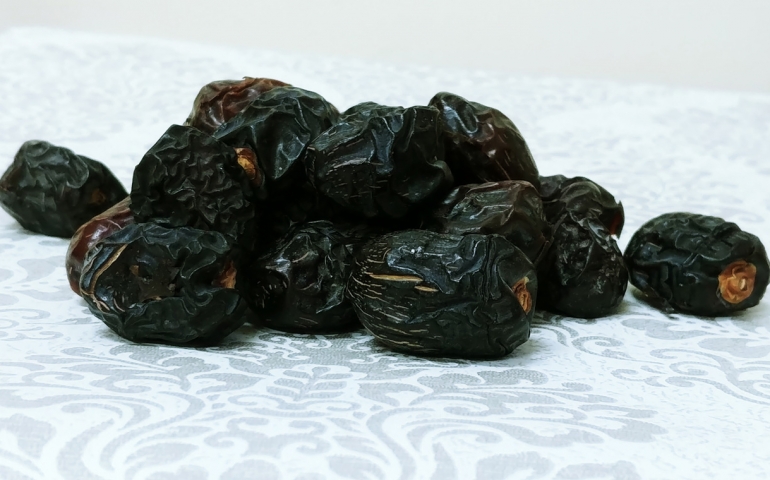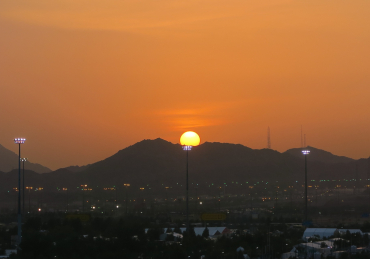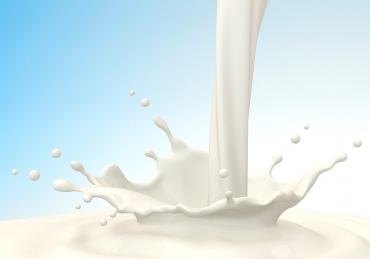Fasting in Dhū al-Ḥijjah
Question
What is the virtue of fasting during the first 9 days of Dhū al-Ḥijjah?
بسم الله الرحمن الرحیم
Answer
The following ḥadīths explain the virtue and importance of fasting and other good deeds during the 9 days of Dhū al-Ḥijjah and in particularly on 9th Dhū al-Ḥijjah:
- ʿAbdullāh ibn ʿAbbās (d. 68/687-8, may Allah be pleased with them) narrates that the messenger of Allah ﷺ said: “No good deeds done on other days are superior to those done on these” (referring to the first ten days of Dhū al-Ḥijjah). They said: “O Messenger of Allah, not even Jihad?” He replied, “Not even Jihad, unless a person places himself and his property in danger (for Allah’s sake) and does not return with any of those things” (Ṣaḥīḥ al-Bukhārī, 969).
- Abu Hurayrah (d. 57/676-7, may Allah be pleased with him) narrates that the Prophet ﷺ said: “There are no days more beloved to Allah that He be worshipped in them than the ten days of Dhū al-Ḥijjah, fasting every day of them is equal to fasting a year, and standing every night of them (in Ṣalāh) is equal to standing on the Night of Qadr (decree) (Sunan al-Tirmidhī, 758; Sunan Ibn Mājah, 1728; al-Ḍuʿafāʾ al-Kabīr 1:163; the isnād of this narration is weak, Fatḥ al-Bārī, 2:461).
- Ḥafṣah (d. 41/661, may Allah be pleased with her) said: “There are four deeds the Prophet ﷺ never abandoned: Fasting ʿĀshūrāʾ, the ten days (of Dhū al-Ḥijjah) and three days of each month, and praying two rakʿat before Fajr Ṣalāh” (Sunan al-Nasāʾī, 2416; Ṣaḥīḥ Ibn Ḥibbān, 6422; also see Sunan Abī Dāwūd, 2437; Naṣb al-Rāyah, 2:157).
- Abū Qatādah (d. 54/673-4, may Allah be pleased with him) narrates in his lengthy narration that the messenger of Allah ﷺ was asked about the fast of the day of ʿArafah (9th Dhū al-Ḥijjah), so he ﷺ said, “It expiates the sins of the past and future year” (Ṣaḥīḥ Muslim, 1162; the same ḥadīth mentions that the fast of ʿĀshūrāʾ expiates the sins of the previous year. Refer to our earlier answer for the reasons behind the difference between the two fasts).
Accordingly, it is desirable to fast during the first nine days of Dhū al-Ḥijjah and also perform other good deeds. If one is unable to fast all the nine days, he should fast as many days possible, and at least on 9th Dhū al-Ḥijjah (as long as he is not in Hajj).
It is worth noting that the first ten days of Dhū al-Ḥijjah have been classified as the most virtuous days of the year. Most scholars have affirmed that these ten days are more virtuous than the final ten days of Ramaḍān although there is a difference of opinion regarding the nights. Ḥāfiẓ Ibn Ḥajar al-ʿAsqalānī (d. 852/1449) explains that the first ten days of Dhū al-Ḥijjah are unique because many great acts of worship coincide therein, such as Ṣalāh, fasting, charity, and pilgrimage; these actions do not coincide on other days.
قال السرخسي في المبسوط (٣/٩٢): الصوم في هذه الأيام مندوب إليه، وهو قياس صوم عاشوراء وصوم شعبان، انتهى. وقال الحدادي في السراج الوهاج (ق ٥٠٧/أ) وحكاه في الفتاوى الهندية (١/٢٠١): ويستحب أيضا صوم تسعة أيام من أول ذي الحجة، انتهى. وقال الحافظ ابن حجر في الفتح (٢/٤٦٠): والذي يظهر أن السبب في امتياز عشر ذي الحجة لمكان اجتماع أمهات العبادة فيه، وهي الصلاة والصيام والصدقة والحج، ولا يتأتى ذلك في غيره، انتهى۔
وكتبت في بعض أجوبتي: قال شیخ الإسلام ابن تیمیة: أیام عشر ذي الحجة أفضل من أیام العشر من رمضان، واللیالي العشر الأواخر من رمضان أفضل من لیالي عشر ذي الحجة، كذا في الفتاوی الكبری (٢/٤۷۷). وقال الحافظ ابن القیم في بدائع الفوائد (٣/۱٦۲): وإذا تأمل الفاضل اللبیب هذا الجواب وجده كافیا شافیا، فإنه لیس من أیام العمل فیها أحب إلی الله من أیام عشر ذي الحجة، وفیها یوم عرفة ویوم النحر ویوم الترویة، وأما لیالي عشر رمضان فهي لیلة الإحیاء التي كان رسول الله صلی الله علیه وسلم یحییها كلها، وفیها لیلة خیر من ألف شهر، انتهی، وراجع زاد المعاد (١/٥۷) وحاشیة ابن القیم علی سنن أبي داود (٦/۳۱٥). وهذا القول اختاره ابن كثیر والمناوي في فيض القدير (٢/٥۱). قال ابن كثیر في التفسير (٥/٤۱٦): وتوسط آخرون، فقالوا: أیام هذا أفضل، ولیالي ذاك أفضل، وبهذا یجتمع شمع الأدلة، انتهی، لکن قال ابن رجب في لطائف المعارف (ص ۲٦۷) وتبعه القسطلاني (٢/۲۱۷): والتحقیق ما قاله بعض أعیان المتأخرین من العلماء أن یقال: مجموع هذا العشر أفضل من مجموع عشر رمضان، وإن كان في عشر رمضان لیلة لا یفضل علیها غیرها، انتهی. وسبقه به ابن مفلح في الفروع (٥/۱۳۰) ورجحه وتبعه المرداوي في الإنصاف (٣/۳٥۷)، ودلیلهم الأحادیث المذكورة وقول الله تعالی: والفجر ولیال عشر. قال ابن كثیر (٨/۳۹۰): المراد بها عشر ذي الحجة كما قاله ابن عباس وابن الزبیر ومجاهد وغیر واحد من السلف والخلف، انتهی. وراجع تفسیر الطبري (٢٤/۳٤٥)، وقال أبو عبد الله القرطبي (٢٠/۳۹): هي أفضل أیام السنة، انتهی. ومال ابن حجر المكي في أشرف الوسائل (ص ٤۲۸) إلی أن أیام جمیع رمضان أفضل مطلقا، وراجع تحفة المحتاج (٣/۳۷۱)، انتهى من جوابي في الفرق بين صوم عاشوراء وصوم يوم عرفة بتصرف يسير۔
وأما الإمام ابن حبان رحمه الله تعالى فظاهر كلامه أنهما متساو في الفضل، لأنه ترجم (٣٤٣١): ذكر الإخبار بأن عشر ذي الحجة وشهر رمضان في الفضل يكونان سيين، وخرج فيه الحديث المعروف: شهرا عيد لا ينقصان: رمضان وذو الحجة۔
Allah knows best
Yusuf Shabbir
1 Dhū al-Ḥijjah 1441 / 22 July 2020







